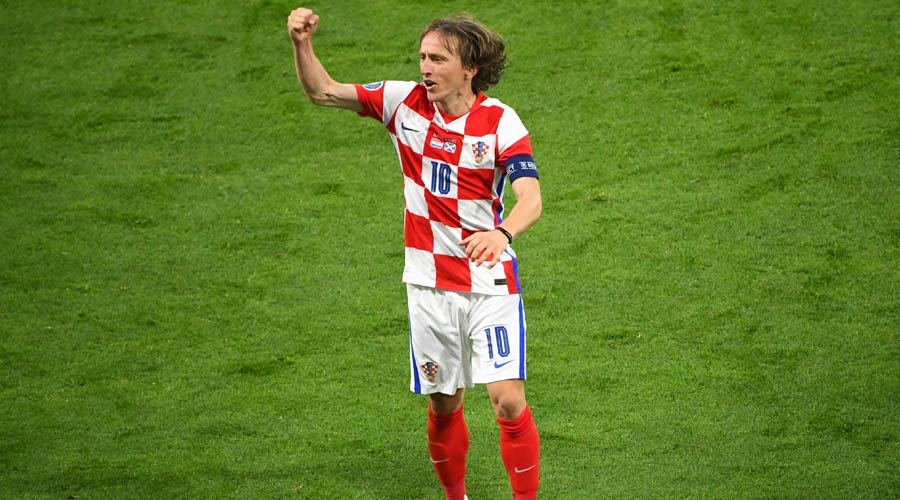At 35, this may well be Luka Modric’s last European Championship. But there he was, prowling on the edge of the box, waiting for that one chance.
Which came in the 62nd minute. As Croatia slowly built possession around the box, the ball fell kindly for Modric, who used all his guile and ingenuity to curl it, with the outside of his foot, into the net.
Majestic.
Not done there, his pinpoint corner was headed home by another ageing Croatia stalwart — Ivan Perisic — for their third goal.
Amid chants of “No Scotland, no party” at Glasgow’s Hampden Park, it was Modric who acted as the match conductor as Croatia outclassed Scotland 3-1 deservedly taking their own place in the last 16.
It was a much improved performance from the 2018 World Cup runners-up after tepid displays in a 1-0 defeat by England and a 1-1 draw with the Czech Republic.
Both teams needed a win to advance and after Callum McGregor cancelled out Nikola Vlasic’s opener for the Croatians, Modric used all his experience and knowhow to slowly take control of the game.
By his own exalted standards, Modric had had a quiet first two group matches, having been forced into deeper positions and Croatia facing criticism for lacking spark in attack. But Modric showed his class and why he won the Ballon d’Or in 2018 — the same year he helped his team reach the World Cup final.
Modric completed more passes than any player on the pitch, more than double the number by any Scottish player. Tellingly, he made 22 more passes than any other player in the opponent’s half.
Croatia coach Zlatko Dalic was effusive in his praise for his star player.
“Whatever I say about Luka and his play it wouldn’t be enough ... I’m very proud of him, to be able to coach him and for him to be part of our team,” Dalic said.
“Congratulations to the lads for an effervescent performance… we will now be ready for whoever comes our way in the last 16,” he added.
Modric was emotional after a fine individual display reminiscent of his performances in the 2018 World Cup.
“After tonight’s performance, we’d have been able to walk off the pitch with our heads high even if we had lost,” he told Croatia’s HRT state television broadcaster.
“The goal I scored means a lot to me and I am glad it helped us win, but the most important thing is that the whole team looked the part.”
At 35 years and 286 days, Modric became Croatia’s oldest goalscorer at the Euros. He was also their youngest, scoring as a 22-year-old in 2008.
The captain and midfield metronome may not be able to run every team ragged, or take every match by the scruff of the neck, but when it really matters, Modric showed he can still make all the difference.
Written with agency inputs











